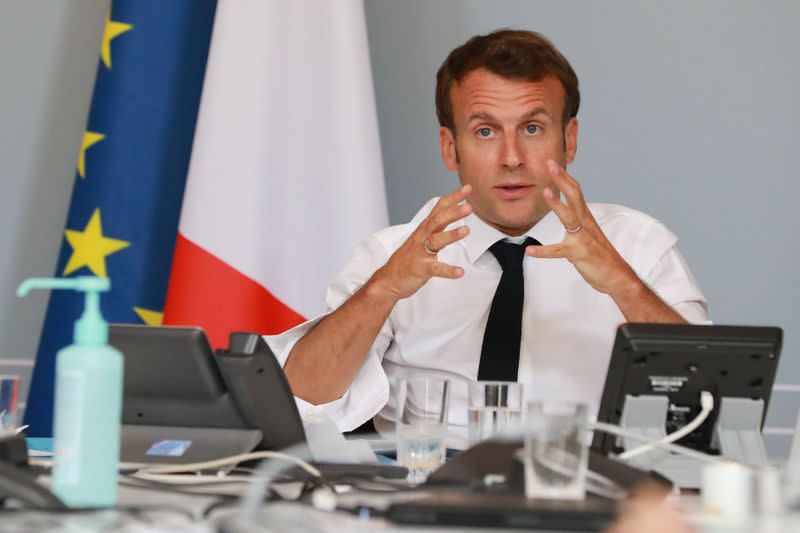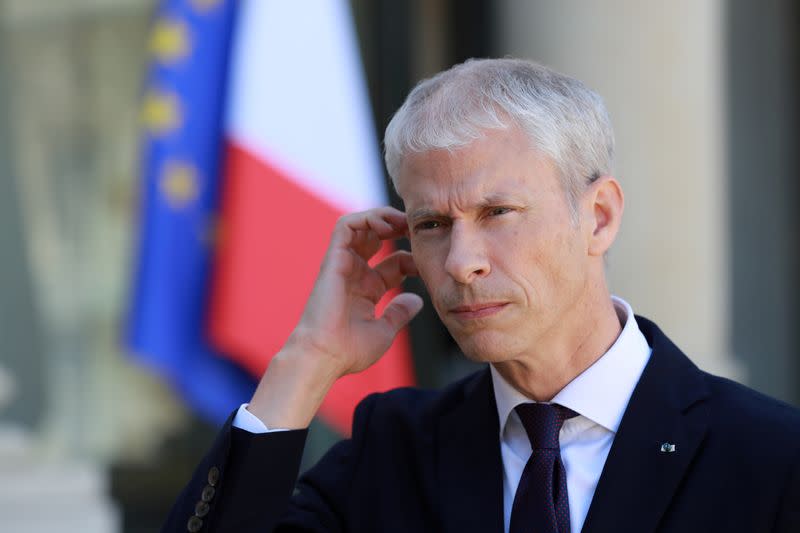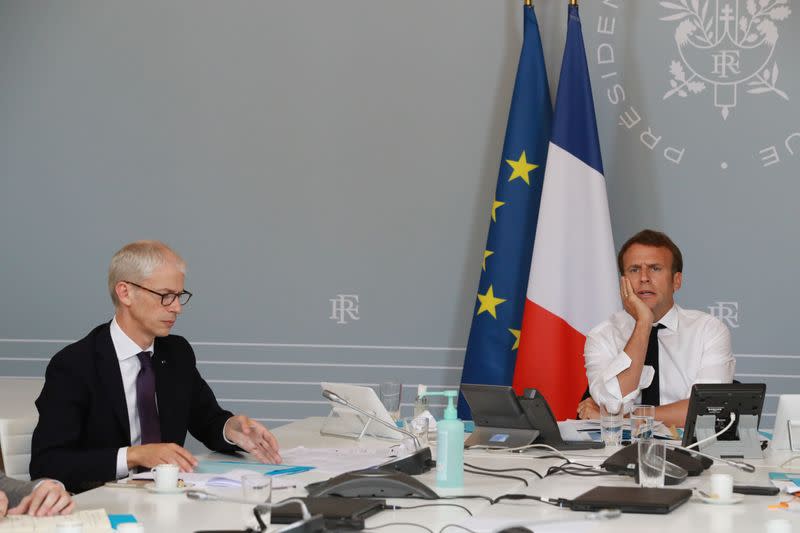France's Macron offers bailout for culture workers
By Sudip Kar-Gupta and Johnny Cotton
PARIS (Reuters) - French president Emmanuel Macron promised guaranteed stipends for out-of-work actors and money for filmmakers whose productions have been cancelled, as part of a bailout for an arts industry shut down by the coronavirus.
Macron's government had been under fire for failing to act quickly enough to shield France's theatres, libraries and concert halls from the turmoil wrought by the pandemic.
Like other European countries, France has launched a programme to pay most of the salaries of many employees sent home during the lockdown. But that has not covered many in the arts, who often work from gig to gig.
France has around a quarter of a million actors, musicians, dancers, set designers and other artists on short term contracts. Such workers, known as "intermittents", receive state stipends to help cover costs between jobs provided they work at least 507 hours per year.
With venues shut due to the virus, Macron said he would waive the minimum work requirement for artists to receive those stipends until August next year.
"Many intermittents cannot make up their hours," Macron said in a video conference call with their representatives and his finance and culture ministers.
He also promised a compensation fund for film-makers whose shoots had been cancelled, and a four-month exemption on social security payments for writers. Freelance workers in the culture sector would be eligible for support from a multi-billion euro solidarity fund.
For decades, the French state has been among Europe's most lavish patrons of culture, pouring money into showcase projects such as the Louvre's glass pyramid as well as the country's rap music, cinema and literature.
But bailing out the arts sector has been tricky so far under government programmes mainly designed to safeguard the jobs of full-time employees.
Even as France looks to emerge slowly from the lockdown from Monday, cinemas, theatres and concert halls will remain closed for longer. Cultural events that bring more than 5,000 people together will not take place until September.
Choreographer Nicolas Maloufi said uncertainty was a fact of life in an industry where he needs short-term contracts from three or four employers over the course of a year to have a hope of making up the required hours. The stipend was critical to helping performers and technicians stay afloat.
"We need this regular stream of income to see us through the irregular flow of work," he said Maloufi.
(Reporting by Sudip Kar-Gupta and Benoit Van Overstraeten; Writing by Richard Lough; Editing by Mark Heinrich and Peter Graff)



